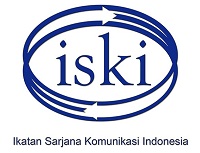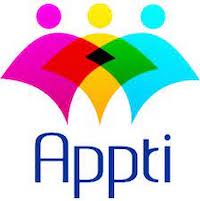Islamic Education Teachers’ Adaptation in Digital Learning during the Covid-19 Pandemic
Abstract
Keywords
Full Text:
PDFReferences
Adedoyin, O. B., & Soykan, E. (2020). Covid-19 Pandemic and Online Learning: The Challenges and Opportunities. Interactive Learning Environments, 1–13. https://doi.org/10.1080/10494820.2020.1813180
Afriansyah, A. (2020). Guru di Masa Pandemi: Pola Adaptasi, Komunikasi, Transformasi, dan Strategi Baru Mendidik Anak. MAARIF, 15(2), 394–415.
Berry, J. W. (1997). Immigration, Acculturation, and Adaptation. Applied Psychology, 46 (1), 5-34.
Braun, V., & Clarke, V. (2013). Successful Qualitative Research: A Practical Guide for Beginners. SAGE Publications.
Creswell, J. (2013). Qualitative Inquiry & Research Design: Choosing Among Five Approaches (3rd ed.). SAGE Publications.
Creswell, J. W., & Creswell, J. D. (2018). Research Design: Qualitative, Quantitative, and Mixed Method Approaches (5th ed.). SAGE Publications.
Flick, U. (2014). An Introduction to Qualitative Research. In SAGE Publication. SAGE Publications.
Gibson, W., & Brown, A. (2011). Working with Qualitative Data. In Working with Qualitative Data. https://doi.org/10.4135/9780857029041
Iswanto, A., Santoso, A., Muzayanah, U., & Muawanah, S. (2021). Online Religious Learning during the Covid-19 Pandemic: Teachers Practices in Central and East Java, Yogyakarta, and Bali, Indonesia. Proceedings of the 2nd International Conference on Religion and Education, INCRE 2020, 11-12 November 2020, Jakarta, Indonesia. https://doi.org/10.4108/eai.11-11-2020.2308309
Jaelani, A., Fauzi, H., Aisah, H., & Zaqiyah, Q. Y. (2020). Penggunaan Media Online dalam Proses Kegiatan Belajar Mengajar PAI di Masa Pandemi Covid-19 (Studi Pustaka dan Observasi Online). Jurnal IKA PGSD (Ikatan Alumni PGSD) UNARS, 8(1), 12. https://doi.org/10.36841/pgsdunars.v8i1.579
Kangas-Dick, K., & O’Shaughnessy, E. (2020). Interventions that Promote Resilience among Teachers: A Systematic Review of the Literature. International Journal of School & Educational Psychology, 8(2), 131–146. https://doi.org/10.1080/21683603.2020.1734125
Kemdikbud. (2020a). Analisis Survei Cepat Pembelajaran dari Rumah dalam Masa Pencegahan COVID-19. https://puslitjakdikbud.kemdikbud.go.id/assets_front/images/produk/1-gtk/buku/1__Hasil_Survey_Cepat_BDR-Kepala_Sekolah_dan_Guru_(1).pdf
Kemdikbud. (2020b, March 23). Kemendikbud Imbau Pendidik Hadirkan Belajar Menyenangkan Bagi Daerah yang Terapkan Belajar di Rumah. https://www.kemdikbud.go.id/main/blog/2020/03/kemendikbud-imbau-pendidik-hadirkan-belajar-menyenangkan-bagi-daerah-yang-terapkan-belajar-di-rumah
Kemdikbud. (2020c). Survei Belajar dari Rumah Tahun Ajaran 2020/2021. https://puslitjakdikbud.kemdikbud.go.id/assets_front/images/produk/1-gtk/buku/06_200910_Survei_Belajar_dari_Rumah_kepada_Guru_dan_Siswa_Semester_2020_2021.pdf
Lestari, P. A. S., & Gunawan, G. (2020). The Impact of Covid-19 Pandemic on Learning Implementation of Primary and Secondary School Levels. Indonesian Journal of Elementary and Childhood Education, 1(2), 58–63. http://journal.publication-center.com/index.php/ijece/article/view/141
Lloyd, M., & Yelland, N. (2003). Adaptation and Avoidance: Observations of Teachers’ Reactions to Technology in the Classroom. Change: Transformations in Education, 6(1), 81–96. https://search.informit.org/doi/10.3316/ielapa.200307648
Mevarech, Z. R. (1997). The U-curve process that trainee teachers experience in integrating computers into the curriculum. The IFIP TC3 WG3.1/3.5 Joint Working Conference on Information Technology : Supporting Change through Teacher Education: Supporting Change through Teacher Education, 46–51. https://dl.acm.org/doi/10.5555/278371.278378
Muslimah, M. (2020). Peran Media Sosial dalam Pendidikan dan Pengajaran Agama Islam pada Masa Pandemi Covid 19. Aktual Jurnal Penelitian Sosial Dan Keagamaan, 10(1), 40–59. https://ejournal.an-nadwah.ac.id/index.php/aktualita/article/view/161
Muthuprasad, T., Aiswarya, S., Aditya, K. S., & Jha, G. K. (2021). Students’ Perception and Preference for Online Education in India during Covid-19 Pandemic. Social Sciences & Humanities Open, 3(1), 100101. https://doi.org/10.1016/j.ssaho.2020.100101
Oberg, K. (1960). Cultural Shock: Adjustment to New Cultural Environments. Practical Anthropology, os-7(4), 177–182. https://doi.org/10.1177/009182966000700405
Park, C. L., & Slattery, J. M. (2013). Resilience interventions with a focus on meaning and values. In The Resilience Handbook: Approaches to Stress and Trauma. https://doi.org/10.4324/9780203135303
Pollard, A. (2018). Reflective Teaching in Schools. In Bloomsbury.
Putri, R., Purwanto, A., Asbari, M., Wijayanti, L., & Pramono, R. (2020). Impact of the COVID-19 Pandemic on Online Home Learning: An Explorative Study of Primary Schools in Indonesia. International Journal of Advanced Science and Technology, 29(5), 4809–4818.
Rasmitadila, R., Aliyyah, R. R., Rachmadtullah, R., Samsudin, A., Syaodih, E., Nurtanto, M., & Tambunan, A. R. S. (2020). The Perceptions of Primary School Teachers of Online Learning during the COVID-19 Pandemic Period: A Case Study in Indonesia. Journal of Ethnic and Cultural Studies, 7(2), 90. https://doi.org/10.29333/ejecs/388
Shanmugavelu, G., Parasuraman, B., Arokiasamy, R., Kannan, B., & Vadivelu, M. (2020). The Role of Teachers in Reflective Teaching in the Classroom. Shanlax International Journal of Education, 8(3), 30–33. https://doi.org/10.34293/education.v8i3.2439
Shofan, M. (2020). Pendidikan Masa Pandemi Covid 19. MAARIF, 15(1), 269–274.
Sumardi, S., & Nugrahani, D. (2021). Adaptation to Emergency Remote Teaching: Pedagogical Strategy for Pre-Service Language Teachers Amid Covid-19 Pandemic. Turkish Online Journal of Distance Education, 81–93. https://doi.org/10.17718/tojde.906553
Sun, S. Y. H. (2011). Online Language Teaching: The Pedagogical Challenges. Knowledge Management & E-Learning: An International Journal, 428–447. https://doi.org/10.34105/j.kmel.2011.03.030
Susanti, W. (2020). Implementasi Pembelajaran Secara Daring Pada Mata Pelajaran Pendidikan Agama Islam Tingkat SMP di Masa Pandemic Covid-19. Inovasi Pendidikan, 7(2), 134–145.
Syahfitri, R., Sari, D. P., Wahyuni, A., Fatimah, S., & Setiawan, H. R. (2020). Implementasi E-Learning pada Mata Pelajaran Pendidikan Agama Islam di Masa Pandemi Covid-19. Al-Ulum Jurnal Pendidikan Islam, 1(1), 44–54. https://ejurnalilmiah.com/index.php/Al-Ulum/article/view/5
Yusuf, M., Hamdani, H., Siregar, A. P., & Siregar, F. N. (2020). Implementasi Pendidikan Agama Islam di Masa Pandemi Covid-19. Maslahah Jurnal Pengabdian Masyarakat, 1(1), 38–48. https://ejurnalilmiah.com/index.php/Maslahah/article/view/46
DOI: https://doi.org/10.29313/mediator.v15i1.9511
Refbacks
- There are currently no refbacks.

This work is licensed under a Creative Commons Attribution 4.0 International License
























